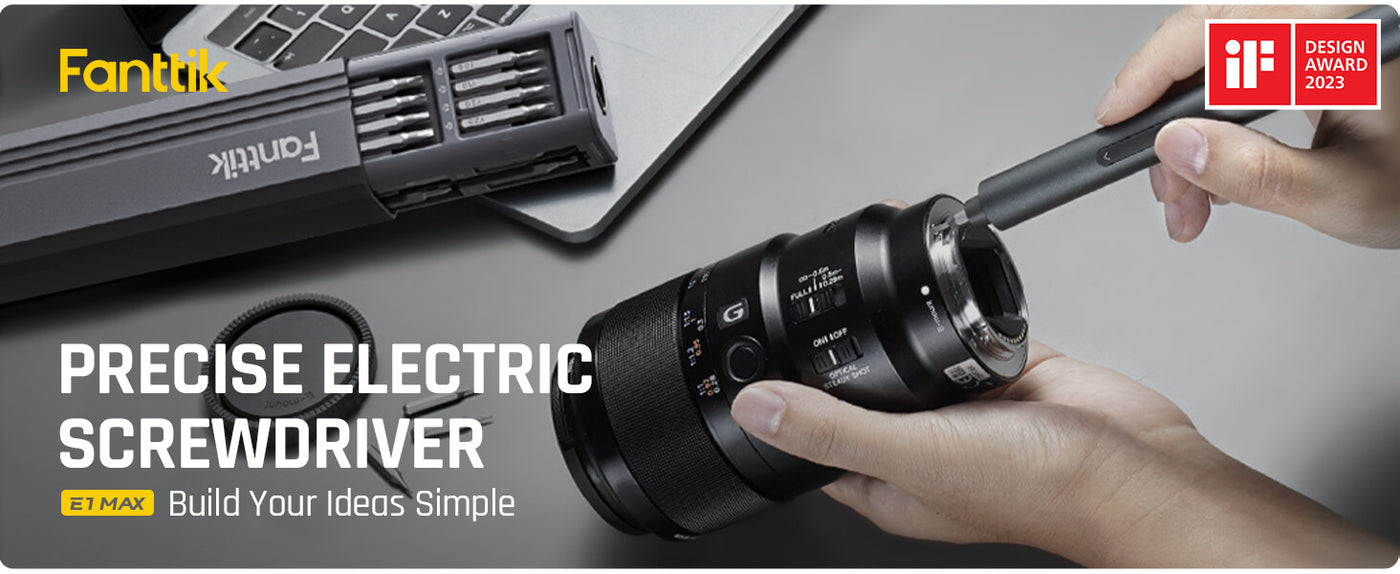Industrial practices have undergone a significant transformation with the advent of speed control in Fanttik electric screw drivers. This groundbreaking technology has revolutionized the way tasks are performed in various industries, enhancing efficiency, precision, and overall productivity. In this article, we will delve into the intricacies of speed control in Fanttik electric screw drivers and explore its profound impact on industrial practices.

The Evolution of Speed Control
Speed control in Fanttik electric screw drivers represents a remarkable advancement in the field of industrial tools. Traditionally, workers had to rely on manual screwdrivers or pneumatic tools, which lacked the flexibility and precision required for complex tasks. With the introduction of speed control, workers can now adjust the rotational speed of the screwdriver according to the specific requirements of the task at hand.
Unleashing the power of speed control in Fanttik electric screw drivers has transformed industrial practices by providing a customizable and efficient solution. Whether it's a delicate assembly process or a heavy-duty application, the ability to control the speed ensures optimal performance and reduces the risk of errors.
Enhanced Precision and Safety
One of the key advantages of speed control in Fanttik electric screw drivers is the enhanced precision it offers. By adjusting the speed, workers can achieve the perfect balance between torque and rotation, allowing for precise tightening or loosening of screws. This level of precision is crucial in industries such as electronics, automotive, and aerospace, where even the slightest deviation can have significant consequences.
Moreover, speed control also contributes to improved safety in industrial practices. By setting the appropriate speed, workers can prevent overtightening or stripping of screws, reducing the risk of damage to components or injury to personnel. This not only ensures a safer working environment but also minimizes the need for rework or repairs, saving both time and resources.
Efficiency and Productivity Boost
Speed control in Fanttik electric screw drivers has unleashed a new level of efficiency and productivity in industrial practices. The ability to adjust the speed allows workers to optimize their workflow, completing tasks in a shorter time frame without compromising quality. For instance, in assembly lines, where multiple screws need to be tightened, workers can set a higher speed for screws that require less torque, enabling them to work faster and meet production targets.
Furthermore, speed control also enables workers to handle a wider range of tasks with a single tool. By simply adjusting the speed, a Fanttik electric screw driver can be used for delicate tasks that require precision as well as heavy-duty applications that demand more power. This versatility eliminates the need for multiple tools, streamlining the workflow and reducing the overall tooling costs.
Embracing the Future of Industrial Practices
The integration of speed control in Fanttik electric screw drivers has undoubtedly revolutionized industrial practices. Its impact on precision, safety, efficiency, and productivity is undeniable. As industries continue to evolve and demand higher standards, the power of speed control will play a crucial role in meeting these requirements.
So, whether it's assembling intricate electronic components, constructing automobiles, or manufacturing aerospace parts, speed control in Fanttik electric screw drivers will continue to shape the future of industrial practices, unlocking new possibilities and driving innovation.








